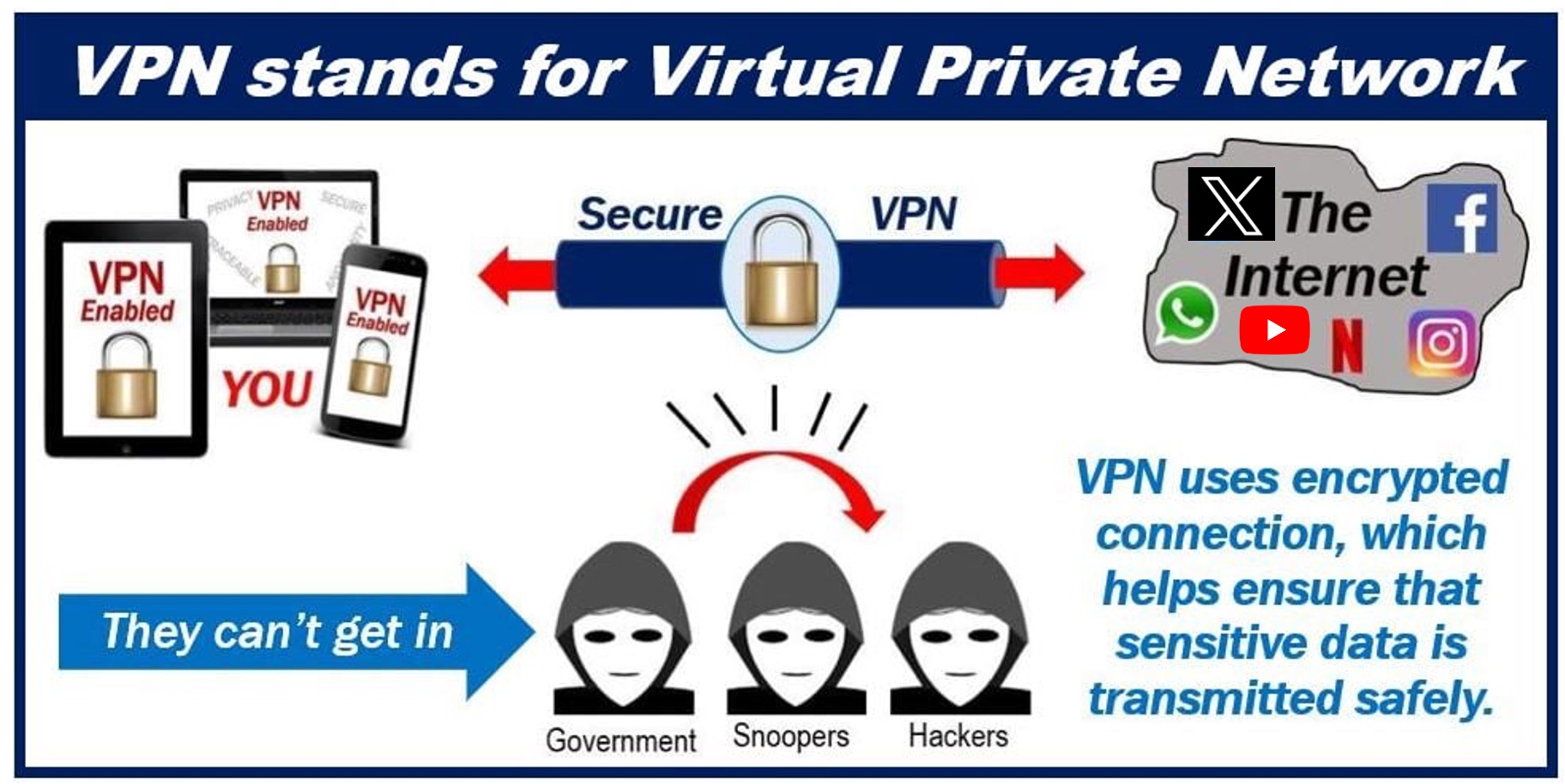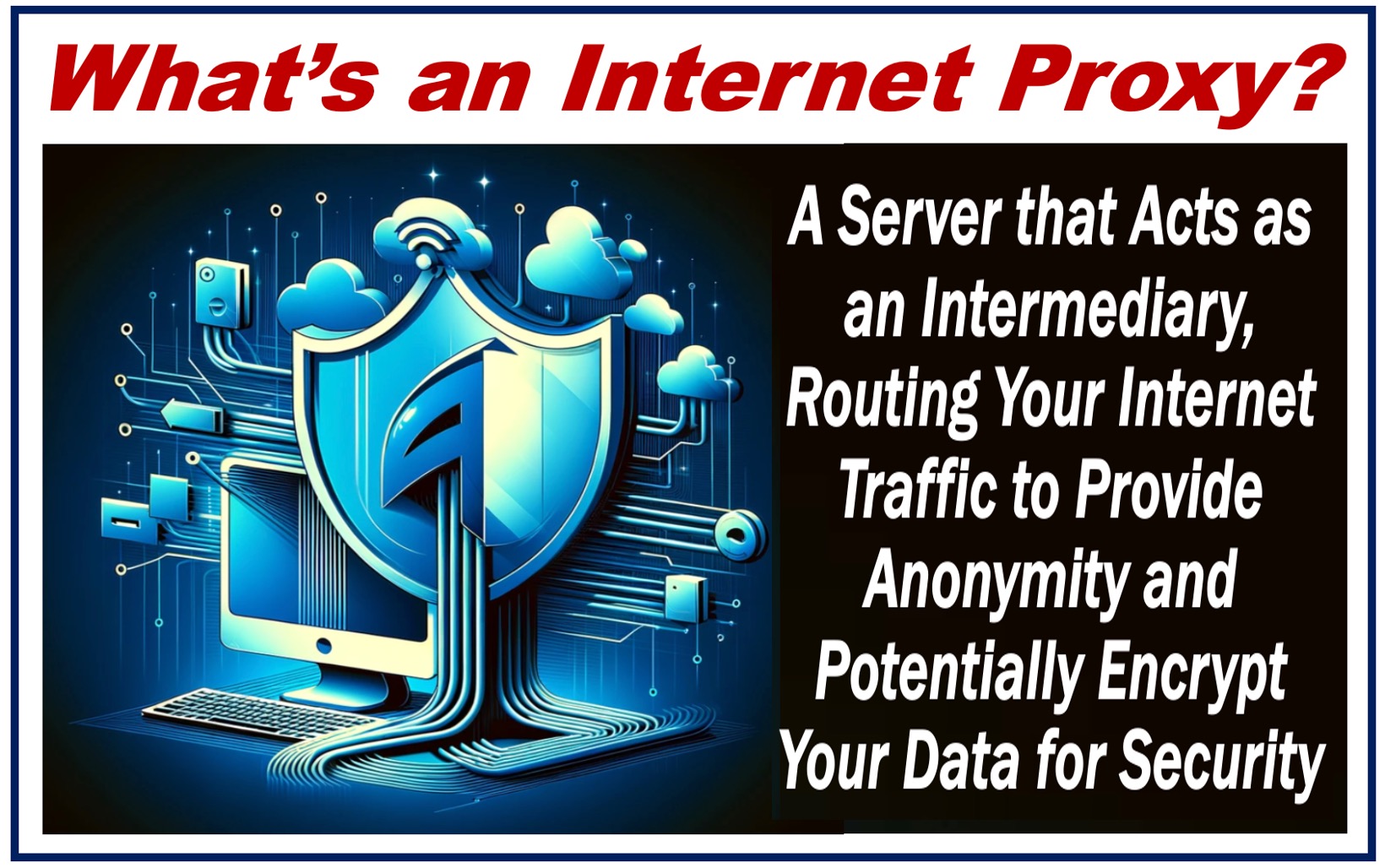What is an Internet proxy?
In today’s digital world, privacy and security are major concerns, especially when browsing the internet. Internet Proxies protect your privacy and safety because when you connect to one, your internet traffic gets routed through the proxy server instead of going directly to the website or service you’re accessing.
As the websites you visit are unaware of your true IP address and online activities, this adds another level of anonymity and security.
The terms Web Proxy and Network Proxy mean the same as Internet Proxy. If the reader or listener knows what your context is, you can simply say/write Proxy.
Digital Guardian says the following about the term “Proxy Server”:
“A proxy server is a gateway that anonymously passes data between users and the internet. The proxy itself could be a computer system or a router. When an individual uses a browser, they normally communicate directly with the internet, but with a proxy server, the proxy communicates with the internet on their behalf.”
Types
There are many types of proxies, such as:
-
Web Proxies
Web proxies most of the time are free online services that allow you to access websites through their servers. This gives a basic level of anonymity.
A VPN creates an encrypted connection between your device and a remote server, this effectively protects your online activities and location.

-
SOCKS Proxy
SOCKS proxies are made to route all internet traffic, including web browsing, email, and instant messaging, through a proxy server. “SOCKS” stands for “Socket Secure.”
-
Reverse Proxy
A reverse proxy serves as a gateway, protecting individuals from direct exposure to the internet by intercepting incoming requests and passing them to the appropriate server.
Benefits of an Internet Proxy
Proxies offer us several benefits. Let’s have a look at some of them:
-
Privacy
They help protect your online privacy by hiding your IP address and browsing activities from websites and internet service providers.
-
Bypass Restrictions
If your school, workplace, or country has restrictions on certain sites, you can use a proxy to help you access them.
-
Access Geo-Restricted Content
Proxies allow you to disguise your location, bypassing regional restrictions to access content like streaming services.
Some proxies encrypt your internet traffic, offering protection against hackers and prying eyes.

Challenges and Considerations
There are several things you should consider before using a proxy, such as:
-
Speed
Using a proxy in some cases can slow down your internet connection, as it’s being routed through an additional server.
-
Reliability
Free web proxies may be less reliable and secure than paid or self-hosted options.
-
Legal and Ethical Considerations
Although proxies have their proper uses, they can also be used for illegal activities like accessing copyrighted content or engaging in cybercrime.
Written by Nicolas Perez Diaz

